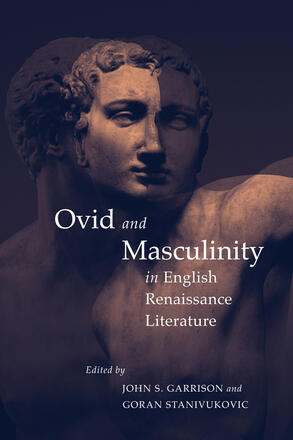
Ovid and Masculinity in English Renaissance Literature
A comprehensive and nuanced analysis of how Ovid inspired new ideas about masculinity and male sexuality in English Renaissance literature.
Description
Ovid transformed English Renaissance literary ideas about love, erotic desire, embodiment, and gender more than any other classical poet. Ovidian concepts of femininity have been well served by modern criticism, but Ovid's impact on masculinity in Renaissance literature remains underexamined. This volume explores how English Renaissance writers shifted away from Virgilian heroic figures to embrace romantic ideals of courtship, civility, and friendship. Ovid's writing about masculinity, love, and desire shaped discourses of masculinity across a wide range of literary texts of the sixteenth and seventeenth centuries, including poetry, prose fiction, and drama. The book covers all major works by Ovid, in addition to Italian humanists Angelo Poliziano and Natale Conti, canonical writers such as William Shakespeare, Christopher Marlowe, Ben Jonson, Edmund Spenser, Philip Sidney, and John Milton, and lesser-known writers such as Wynkyn de Worde, Michael Drayton, Thomas Lodge, Richard Johnson, Robert Greene, John Marston, Thomas Heywood, and Francis Beaumont. Individual essays examine emasculation, abjection, pacifism, female masculinity, boys' masculinity, parody, hospitality, and protean Jewish masculinity. Ovid and Masculinity in English Renaissance Literature demonstrates how Ovid's poetry gave vigour and vitality to male voices in English literature - how his works inspired English writers to reimagine the male authorial voice, the male body, desire, and love in fresh terms.
Reviews
"Ovid and Masculinity in English Renaissance Literature uncovers a surprising nuance in the Renaissance construction of masculinity -- namely, that it is precisely the destabilization of manhood in Ovid that Renaissance writers use to mitigate their own anxieties about gender categories. This impressive collection of engaging essays by leading scholars sheds light on under-appreciated aspects of the Metamorphoses and on English Renaissance constructions of gender." Joseph Ortiz, University of Texas at El Paso